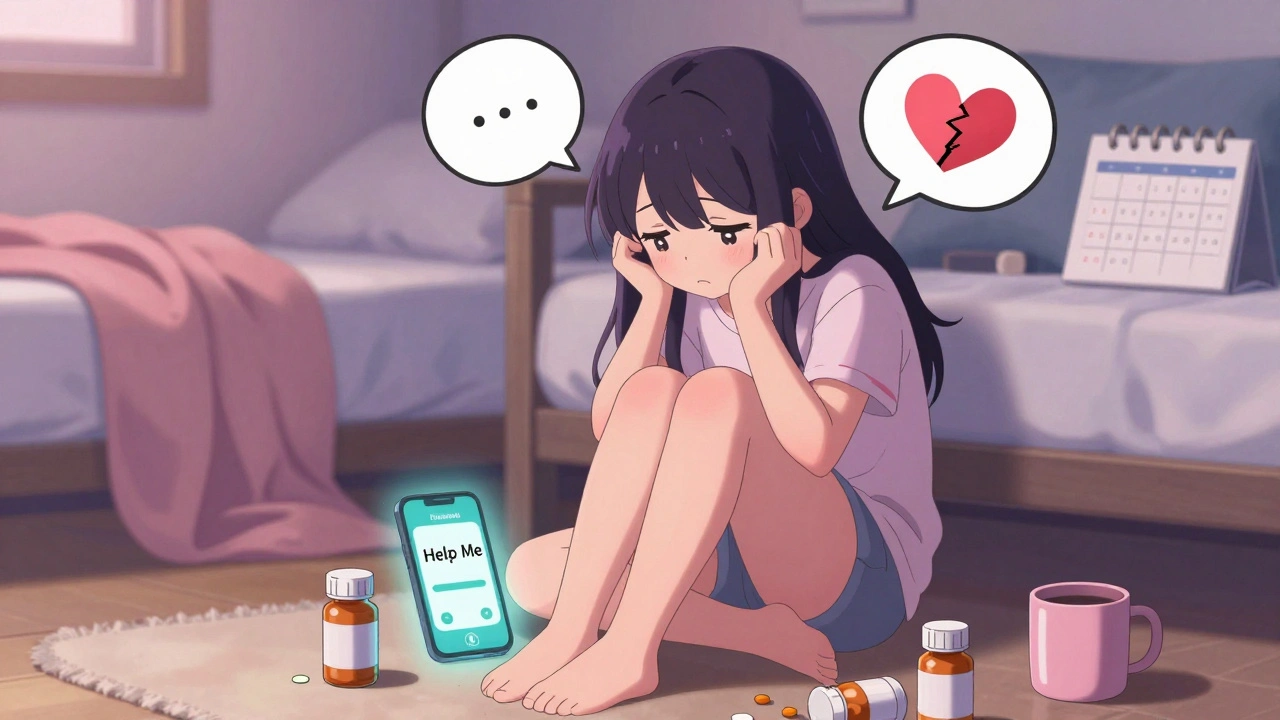If you’ve ever taken a pill and felt a weird taste in your mouth or a sudden headache, you’ve experienced a side effect. It’s the body’s way of reacting to a new chemical. Not all reactions are scary—some are mild and go away on their own—but knowing what to expect can save you from unnecessary worry.
Every medication is designed to target a specific problem, but it also interacts with other parts of your body. Think of it like a key that fits several locks; the lock you want opens, but a few others might click too. This off‑target action can cause symptoms such as nausea, dizziness, or dry mouth. Genetics, age, and other medicines you’re taking all play a role in how strong those reactions become.
Here are the most frequently reported issues across many drugs:
If any of these pop up, check the medication’s label first. Most labels list the top three to five side effects you should expect.
Not every reaction needs a doctor’s visit, but some signs mean you should act fast:
If you notice any of these, call emergency services right away. For milder issues, contact your pharmacist or doctor to discuss dosage changes or alternatives.
1 Take meds with food when advised. Food can buffer stomach irritation caused by many pills.
2 Stay hydrated. Water helps your kidneys flush out excess substances that might cause side effects.
3 Avoid alcohol unless the label says it’s safe. Alcohol often amplifies drowsiness and stomach upset.
4 Keep a symptom diary. Jot down what you took, when, and any feelings that follow. This makes it easier for your doctor to spot patterns.
5 Don’t mix new drugs without checking. Even over‑the‑counter vitamins can interact with prescription meds.
Supplements like magnesium, valerian root, or CBD are marketed as natural, but they still carry risks. Magnesium may cause diarrhea if you take too much. Valerian can make you sleepy, and high‑dose CBD might lead to dry mouth or low blood pressure. Treat them with the same caution you would a prescription.
Side effects are normal, but they don’t have to be a mystery. Knowing why they happen, spotting red flags, and taking simple steps to reduce risk can keep you safe while you reap the benefits of your medication or supplement. Got a lingering symptom? Talk to a health professional—you’re the best advocate for your own body.

Medications cause side effects because they interact with more than just their intended target. From genetic differences to off-target effects and drug interactions, science explains why reactions happen-and how we’re learning to prevent them.

Side effects are the #1 reason people stop taking their meds-even when they know it's important. Learn how to manage them, when to speak up, and how pharmacists can help you stay on track.

Explore how quetiapine influences quality of life, covering its benefits, side effects, clinical evidence, real‑world experiences, and practical tips for patients.

Learn the safe dosage, side effects, and dangerous drug interactions of Viagra Oral Jelly and sildenafil. Understand when it works, who should avoid it, and how to get it legally.

Learn everything about Penegra - what it treats, how to take it, possible side effects, drug interactions, and safety tips for 2025.

Need Mestinon info fast? Here’s how to reach the official label, dosing, side effects, shortages, and safe-use tips in 2025-without wading through junk search results.

Get the lowdown on Zyprexa, a medication widely used for serious mental health conditions like schizophrenia and bipolar disorder. This deep dive covers how it works, what to expect, tips for handling side effects, and real-life facts you won't find on drug labels. Whether you're navigating a new diagnosis or supporting someone who takes Zyprexa, you'll find practical advice and clear info right here.

Sometimes gabapentin just doesn't cut it for pain or seizures—or its side effects are just too much. This article digs into other meds that doctors often choose, breaking down how well they work and the most common side effects. From pregabalin to lesser-known options, you'll find practical details on dosing and comparisons on what users and research say. Real facts, dosing tips, and adverse event details for each option. If gabapentin isn't working for you, here's what else you can try.

As a blogger, I recently discovered some interesting information about the relationship between Atorvastatin and skin health. It turns out that Atorvastatin, a medication commonly used to lower cholesterol, may have some positive effects on our skin. Studies have shown that it can help reduce inflammation and improve skin conditions like psoriasis. However, it's important to note that Atorvastatin is not specifically designed for skin treatment and should only be used under the guidance of a healthcare professional. So, if you're struggling with skin issues, it might be worth discussing this medication with your doctor.

As a copywriter, I've been researching Celecoxib and its connection to skin conditions, and I'd like to share some important information I've learned. Celecoxib is a nonsteroidal anti-inflammatory drug (NSAID) commonly used to treat pain and inflammation. However, it's crucial to know that some people may experience skin reactions while taking this medication. These reactions can range from mild rashes to serious conditions like Stevens-Johnson Syndrome. If you're considering Celecoxib for pain relief, it's essential to consult with your doctor about potential risks and monitor your skin closely while taking the medication.
Learn how to safely manage diuretics in heart failure patients to prevent dangerous low potassium levels. Practical tips on monitoring, supplements, medications, and lifestyle changes to reduce arrhythmia risk.
As a blogger, I recently came across an interesting topic regarding the use of Cephalexin for preoperative prophylaxis. It's amazing to learn that this antibiotic can significantly reduce the risk of infection during surgery. By taking Cephalexin before a procedure, patients can prevent potential complications and ensure a smoother recovery. This is definitely an important measure to consider for those undergoing surgery. I'm glad to have discovered this valuable information and will continue to share such useful findings with my readers.
A side‑by‑side comparison of Viagra (sildenafil) with Cialis, Levitra, Stendra and generics, covering how they work, dosage, cost, safety and choosing the best option.
I've recently discovered a game-changer for wellness, the Arenaria Rubra dietary supplement. This little-known natural powerhouse is full of benefits that can boost your overall health and vitality. It's amazing how it supports everything from our digestive system to our skin health. I've been incorporating it into my daily routine, and I can genuinely feel the difference. If you're looking to elevate your wellness game, Arenaria Rubra is definitely worth considering.